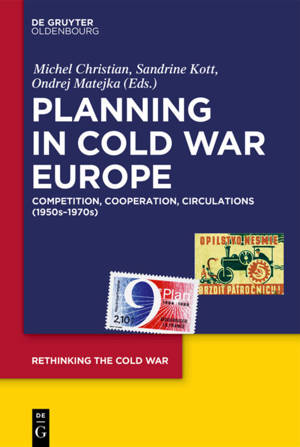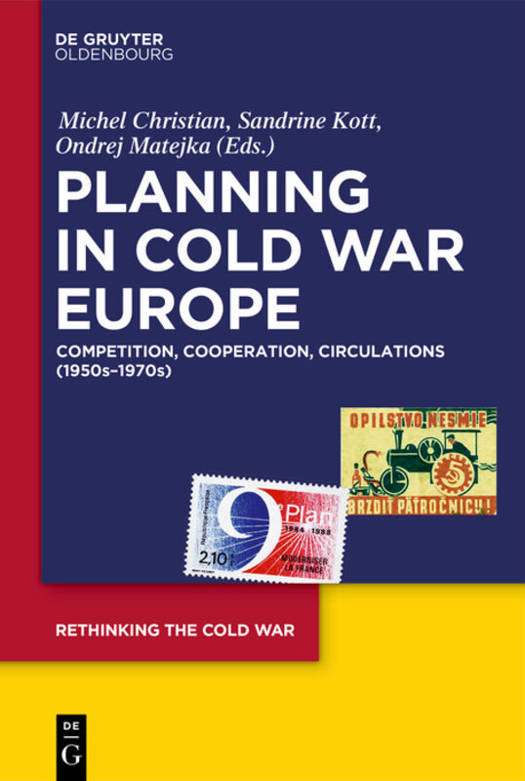
Door een staking bij bpost kan je online bestelling op dit moment iets langer onderweg zijn dan voorzien. Dringend iets nodig? Onze winkels ontvangen jou met open armen!
- Afhalen na 1 uur in een winkel met voorraad
- Gratis thuislevering in België vanaf € 30
- Ruim aanbod met 7 miljoen producten
Door een staking bij bpost kan je online bestelling op dit moment iets langer onderweg zijn dan voorzien. Dringend iets nodig? Onze winkels ontvangen jou met open armen!
- Afhalen na 1 uur in een winkel met voorraad
- Gratis thuislevering in België vanaf € 30
- Ruim aanbod met 7 miljoen producten
Zoeken
Planning in Cold War Europe
Competition, Cooperation, Circulations (1950s-1970s)
€ 106,45
+ 212 punten
Omschrijving
The idea of planning economy and engineering social life has often been linked with Communist regimes' will of control. However, the persuasion that social and economic processes could and should be regulated was by no means limited to them. Intense debates on these issues developed already during the First World War in Europe and became globalized during the World Economic crisis. During the Cold War, such discussions fuelled competition between two models of economic and social organisation but they also revealed the convergences and complementarities between them. This ambiguity, so often overlooked in histories of the Cold War, represents the central issue of the book organized around three axes. First, it highlights how know-how on planning circulated globally and were exchanged by looking at international platforms and organizations. The volume then closely examines specificities of planning ideas and projects in the Communist and Capitalist World. Finally, it explores East-West channels generated by exchanges around issues of planning which functioned irrespective of the Iron Curtain and were exported in developing countries. The volume thus contributes to two fields undergoing a process of profound reassessment: the history of modernisation and of the Cold War.
Specificaties
Betrokkenen
- Uitgeverij:
Inhoud
- Aantal bladzijden:
- 383
- Taal:
- Engels
- Reeks:
- Reeksnummer:
- nr. 2
Eigenschappen
- Productcode (EAN):
- 9783110526561
- Verschijningsdatum:
- 8/10/2018
- Uitvoering:
- Hardcover
- Formaat:
- Genaaid
- Afmetingen:
- 163 mm x 234 mm
- Gewicht:
- 657 g

Alleen bij Standaard Boekhandel
+ 212 punten op je klantenkaart van Standaard Boekhandel
Beoordelingen
We publiceren alleen reviews die voldoen aan de voorwaarden voor reviews. Bekijk onze voorwaarden voor reviews.










